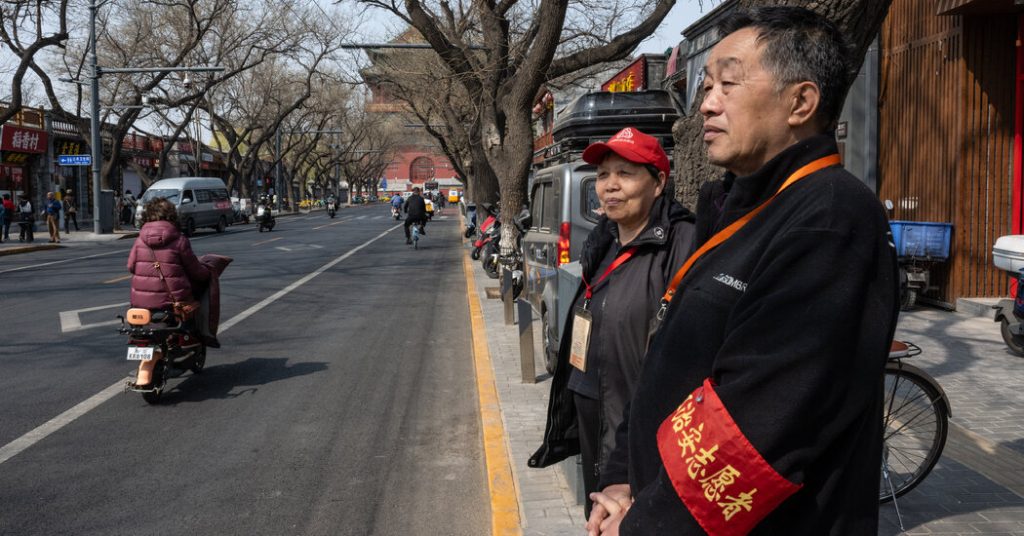In a Beijing apartment complex, a police officer inspects a wall filled with sheets of paper detailing residents’ information, color-coded for trustworthiness. This system is part of an effort by Chinese President Xi Jinping to increase surveillance and control, even at a local level. The goal is to embed the Communist Party in daily life to prevent any challenges to its authority from arising. This approach, known as the “Fengqiao experience for a new era,” involves enlisting ordinary citizens to work alongside police to suppress dissent and maintain the party’s legitimacy.
Xi Jinping’s interest in the Fengqiao experience dates back to when he was the party secretary of Zhejiang Province in 2003. The town of Fengqiao, known for its re-education methods during Mao’s era, served as an inspiration for Xi’s focus on social control and “stability maintenance.” The surveillance apparatus expanded during the COVID-19 pandemic, with the government tracking citizens to unprecedented levels. This surveillance continues even after the pandemic, as a means to cement the party’s control over people’s lives and ensure compliance with its policies.
The party casts its increased surveillance efforts as a form of public service, claiming it helps gather feedback on public needs and resolves conflicts. However, the extent of control exerted by the party has led to concerns about eroding legitimacy and stifling dissent. The campaign’s aggressive enforcement methods have also raised questions about the impact on individuals and economic activity. While some citizens feel reassured by increased patrols and inspections, others experience intimidation and pressure to comply with government mandates.
The government’s efforts to expand surveillance and control extend beyond city residents to minority groups and dissidents. These measures involve enlisting informants, monitoring individuals’ activities, and actively promoting party policies. While the party’s use of surveillance has been effective in maintaining control, there are concerns about overworking officials and the economic impact of these measures. The reliance on incentivized workers to enforce policies could strain local government budgets and hinder economic growth.
As the party further tightens its grip on society, there are fears of stifling innovation and economic growth. The intense focus on surveillance and control risks alienating citizens and creating unrest. Even high-profile political activists and individuals have felt the effects of increased monitoring, with reports of intimidation, forced relocations, and restrictions on enrolling children in school. This relentless control can have long-term consequences for society, potentially impacting economic stability and social cohesion.


